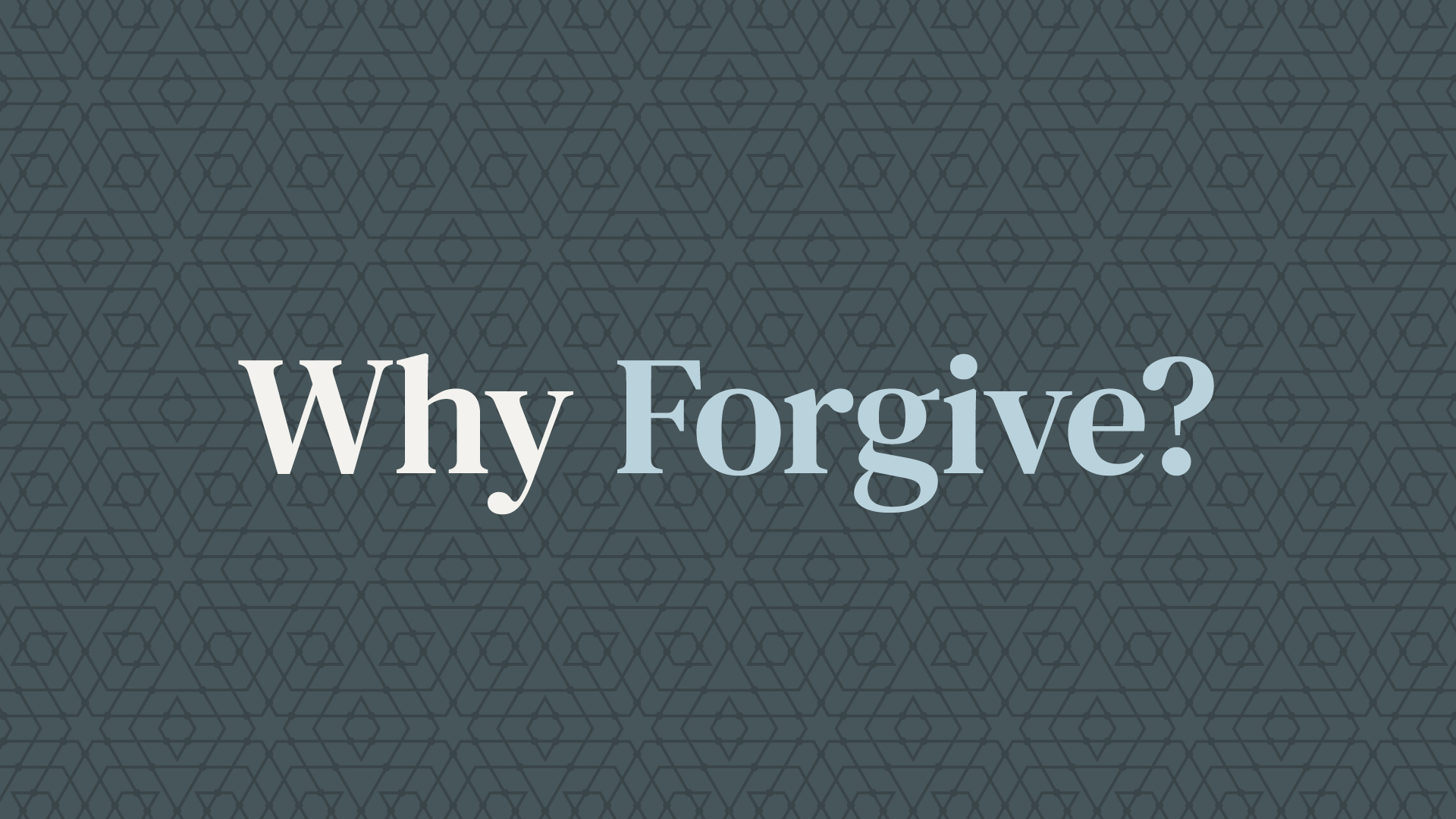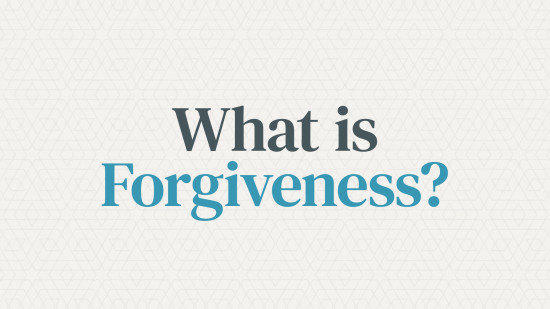Forgiveness is hard. We often don’t want to forgive people who have sinned against us or hurt us in some way. It goes against our nature; we naturally want others to pay for what they’ve done and make up for the way they’ve wronged us.
However, forgiveness is also the best thing you can do—not for the person being forgiven, but for yourself. Forgiveness is a command from God, a right response to what God has done for you, and a gift you give yourself.
Forgiveness Is Commanded by God
God’s Word is abundantly clear that we are expected to forgive others.
In the Sermon on the Mount, Jesus says that we must forgive others to be forgiven (Matthew 6:14-15) and that the merciful shall receive mercy (Matthew 5:7). Later, Matthew 18:21-22 says that we are to forgive someone “seventy-seven times” (or, in many translations, “seventy times seven,” which is 490 times). In Luke 17:4, Jesus says that you should forgive someone seven times in one day; that would work out to more than 2,500 acts of forgiveness each year, every year. The point is that you are not supposed to keep count, and there is no limit to how many times you should forgive someone.
Refusing to forgive is disobedience to God, but choosing to forgive is not legalism. Any time God asks us to do something, it is ultimately for our own good. Forgiveness is good for your own heart, and it is how we can all live together in a kind (Ephesians 4:32) and loving way (John 13:34-35).
Forgiveness Is a Right Response to God’s Forgiveness of Us
When explaining how often we are to forgive someone, Jesus uses a parable to explain the motivation behind why we forgive.
In Matthew 18:23-35, He tells the story of a servant who was forgiven a massive debt. The amount the servant owed—10,000 talents—was so large that, even if he spent all of his income on debt payments and was charged no interest, it would take him 200,000 years to repay the debt. In other words, his life was over. He had no future, and nothing to look forward to. So, he did the only thing he could: he begged for mercy. Miraculously, in a matter of seconds, he was given new life. It wasn’t like the king put him on a payment plan, asking him to pay $100 a month for the next five million years (which is roughly how long it would take at that rate). Instead, the debt was canceled. He owed zero dollars. He was completely free.
That servant, in turn, had someone who owed him about four months’ wages. Note that most of us probably do owe someone that much, or likely even more—especially if you have a mortgage, a new car payment, a business loan, or student loans. Although the servant had just been forgiven much, he refused to forgive this much smaller amount (only 0.000167% as much as what he had owed).
Now, if you only heard the second part of the story, you would think, of course he didn’t forgive the other person. How could he forgive a debt equal to a third of a year’s wages? That’s a big amount. Forgiving it would be costly. But when you know the first part of the story, it completely flips the response. How in the world could he not forgive the debt, when he’s just been forgiven 600,000 times as much? In fact, how dare he refuse to forgive him.
Of course, the parable is really about us. God has forgiven us an eternal debt we could never repay. We could never earn His grace, even if we spent our whole lives (or many lifetimes) trying. So how could we not forgive someone who has sinned against us?
Forgiveness Is a Gift You Give Yourself
People often hold onto grudges because they want the other person to suffer for what they’ve done. However, refusing to forgive someone doesn’t necessarily hurt the other person at all; depending on the situation, they may not even know (or care) that there is a problem. The one person that unforgiveness does hurt is you.
Unforgiveness ensures that you are unhappy, because you remain focused on how you’ve been wronged. It doesn’t affect the other person unless you use it as an excuse to be hurtful towards them. And, if that is the case, you have become the one who is sinning against them, instead of the other way around.
It’s been said that holding a grudge is like drinking poison and hoping that the other person will die. Don’t drink the poison. Just pour it out.
Loving Through Forgiveness
Forgiveness is loving. God’s extravagant forgiveness of us is how He shows His love for us (John 3:16). We are called to love each other in the same way (John 13:34-35). We love because God first loved us (1 John 4:19), and we forgive because He first forgave us (Colossians 3:13).
For more on what forgiveness is and how we should go about forgiving each other, check out the other articles in this series.

